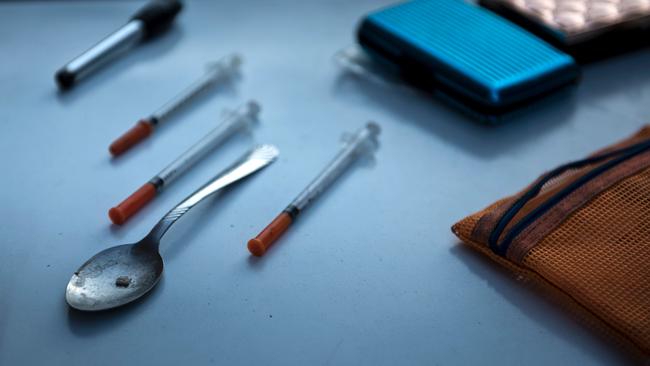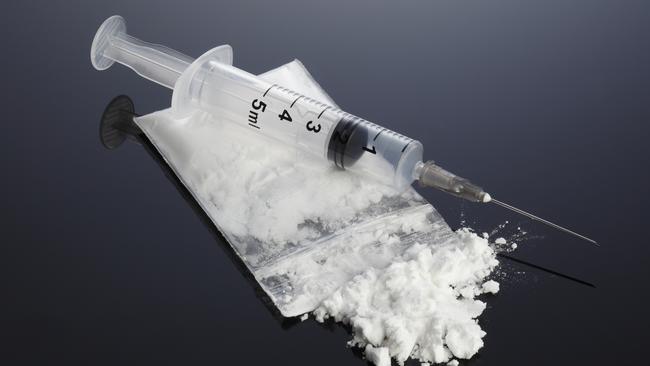Ineffective drug policies can no longer be ignored
AN ancient drug possession conviction should not mean a lifelong criminal record. That’s just one of the aspects of our failing drug policy which needs reform, writes Gino Vumbaca.

Rendezview
Don't miss out on the headlines from Rendezview. Followed categories will be added to My News.
DRUG policy around the world today is in a state of change, and increasingly these changes are focused on fixing the harmful consequences of the ‘war on drugs’ approach taken by governments.
While the decriminalisation success in Portugal is well known, what is not so well known are the changes occurring elsewhere including in our own Asia-Pacific region.
In Canada, we have seen an increase in the number of harm reduction programs available, such as heroin-assisted treatment and drug consumption rooms. The Trudeau government has also committed to legalising the personal recreational use of cannabis.
Even in the United States, people in an increasing number of states are defying the national administration rhetoric of continuing a war on drugs by voting to legalise cannabis use.
In our region, Myanmar is set to adopt a national harm reduction drug policy, and in Thailand there are discussions at the parliamentary level on taking the very important step of removing the long-term punishment imposed on anyone with a drug conviction.
Closer to home, the Adern Government in New Zealand is planning a referendum on the legalisation of recreational use of cannabis and is committed to a harm reduction approach to drug policy.

These changes are happening for many reasons. Primarily, it’s the overwhelming evidence discrediting drug prohibition policies and its huge economic, social and health costs. Some countries have simply recognised that criminalising and imprisoning swathes of their citizens has become untenable. In some countries up to 80 per cent of prisoners are in custody simply for drug use.
So where does Australia stand in the midst of all this global change?
Unfortunately, our governments seem to be desperately clinging to a rhetoric and approach that is seen as being ‘tough’ so they may avoid any perception they are going ‘soft’ on drugs.
It has to be said that our national governments have thankfully never really embraced a US style war on drugs mentality and were actually early innovators and adopters of progressive drug policies. They were more focused on evidence and reducing harms, especially when HIV appeared. But today, our position can be best described as resembling a broken down motor vehicle on the side of the road as the rest of the world speeds by us.
Our governments make statements of using a health-based approach to drug use, yet we are arresting more and more people for using drugs. They also continue to allocate far more resources to policing drug use, while at the same time spreading our drug treatment funding so thinly across layers of bureaucracy that more appears to be spent on administration and compliance than actually assisting people. To add insult to injury, our government then ignores evidence to promote a failed tough love urine testing program of welfare recipients.

Given the desire for governments to rightfully rectify the injustices of the past, it is time for all our governments to come together and address the shameful lifelong punishment being inflicted on those people burdened with drug use convictions.
For those unable to access the legal resources to avoid a record of conviction, being caught in possession, or using a drug results in being inexplicably excluded from some types of employment and travel for life.
If ever there was a perfect example of a punishment not fitting a crime this is it. For what possible reason should a 19-year-old caught using drugs be banished from so many future opportunities?
So here is a plan for governments of all persuasions in 2018:
1. Convene a national summit to commit to introducing policies that reduce drug harm.
2. Redirect funding from ineffective policies and practices to those that are effective.
3. Stop criminalising people for the simple act of possessing or using drugs and expunge the existing records of people with such convictions.
Of course, for those wanting a ‘real’ war on drugs, there is always the option of moving to the Philippines to join President Duterte in his extrajudicial killing spree. Just remember that also means inflicting such a punishment on those you know and love — no exceptions, as the Philippines President has made clear.
Gino Vumbaca is the President of Harm Reduction Australia.


